Anger, suspicions remain after water vote
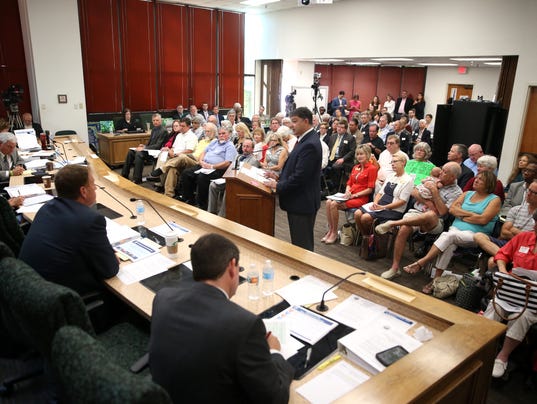 Buy Photo
Buy Photo
(Photo: Joe Rondone/Democrat)
People suspicious of Gov. Rick Scott’s environmental agenda were hardly surprised last week when the Environmental Regulation Commission signed off on controversial new limits for toxic compounds that can go into Florida’s surface waters.
They say the deck was stacked when the Department of Environmental Protection took the standards to the commission for approval, the latest step in a years-long effort to modernize out-of-date limits under the federal Clean Water Act.
The agency sought approval from the seven-member board at a time when its governor-appointed ranks were down two people. Seats set aside for local government and the environmental community were empty when the ERC voted 3-2 to OK the standards.
“The whole thing stinks,” said Dr. Ray Bellamy, a Tallahassee surgeon who served on the commission in the 1980s under Democratic and Republican governors. “But so does just about everything else this administration does in relation to the environment.”
But members of the commission — including those who voted against the plan — say there was no grand conspiracy to take advantage of the vacancies and push the new regulations through. They say they made a good-faith effort to act in Florida’s best interests while weighing a highly complicated and technical proposal.
“A lot of people are disappointed with our action,” said Cari Roth, a Tallahassee attorney who chairs the commission and voted in favor of the proposal. “And I struggled with it mightily because it’s not like I was unaware of how controversial it was and how passionately people felt about their concerns.”
DEP’s plan would put regulations on nearly 40 dangerous chemical compounds for the first time. But it also would allow higher amounts of nearly two dozen others, including known carcinogens.
State statutes say the governor “shall provide reasonable representation from all sections of the state” on the commission, including members who represent agriculture, development, local government, the environmental community, lay citizens and science.
At the time of the commission vote Tuesday, the environmental seat had been vacant for more than a year. The local government seat had been empty since February.
Gov. Scott’s most recent appointee to the ERC sits in the “lay person” chair but is in fact an agency insider. Craig Varn of Tallahassee served as DEP’s general counsel from February 2015 to April 2016 before joining the commission in May, around the time the department rolled out its new standards.
Varn voted in favor of the new standards, noting at the time that both industry and environmentalists had problems with it. Sarah Walton, a Pensacola attorney, also voted for the plan.
Voting against it were Adam Gelber, a Miami Beach biologist and senior project manager for Atkins North America, and Joe Joyce, director of the Center for Leadership at the University of Florida’s Institute of Food and Agricultural Sciences.
Linda Young, executive director of the Florida Clean Water Network, said the outcome of the vote probably would have been different had the commission been operating with all seven members.
“I’m feeling like that was deliberate, to have those seats empty,” she said. “People not only feel like their waters are being threatened but also that that’s not democracy. That’s not what we expect from our government. And people are mad.”
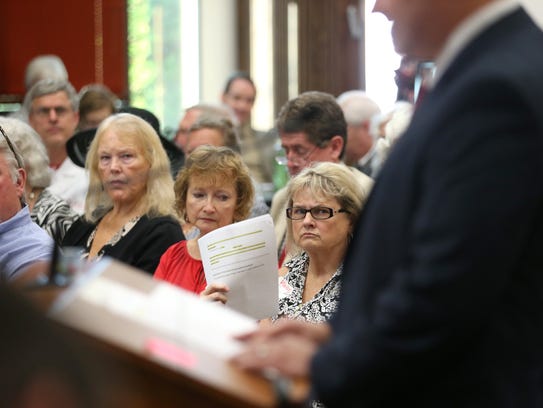 Buy Photo
Buy Photo
People listen to Tom Frick, DEP director of Environmental Assessment and Restoration during a meeting of the Environmental Regulation Commission Tuesday, July 26, 2016. (Photo: Joe Rondone/Democrat)
Sen. Miguel Diaz de la Portilla, R-Miami, issued a statement last week calling the standards “indefensible” and noting new limits on some compounds would increase by more than 1,000 percent.
“I cannot help but think that the vote would have not been 3-2 in favor, but 4-3 against, had a full commission been given the chance to vote on this proposal,” he said.
The Governor’s Office responded to questions about the vacancies by inviting people to apply for them online. Asked about the new limits, the Governor’s Office said it has worked alongside the U.S. Environmental Protection Agency to strengthen water-quality standards.
“Our No. 1 priority is the safety of the families and visitors in our state and ensuring the highest water-quality standards,” said Lauren Schenone, the governor’s press secretary.
‘Very good progress’
Florida last updated its human health criteria for surface waters in 1992. DEP took new standards to the ERC in 2013, but the board tabled them in part over questions about fish consumption data used to calculate limits.
Under current standards, Floridians have a one in a million greater risk of getting cancer from exposure to the chemicals through seafood or water. Under the new ones, average Floridians still would have a one in a million risk. But others who weigh less than average or eat more seafood would have higher risks. Chances would go up to around one in 100,000 for people more exposed and around one in 10,000 for subsistence fishermen, DEP says.
The department arrived at its new limits using a probabilistic approach, a complicated methodology not used by any other state. DEP says its method better protects all Floridians from cancer. But critics deride it as Florida’s “cancer lottery.”
Roth, who represents the development community, said she never would have voted for the new standards if she thought they would increase cancer risks. The former general counsel for the Department of Community Affairs is a breast cancer survivor herself.
She said the new numbers were built on conservative assumptions that err on the side of protecting human health. The department assumed all fish Floridians eat comes from Florida and all waters are polluted at maximum levels, neither of which is the case. She also said DEP staff assured the commission that regulated entities would not increase polluted discharges into the water.
“So, we could have done nothing again on Tuesday and study it for another decade,” she said in an email. “Or put it in place, with 39 new pollutants now regulated and keep refining as we learn more. But after almost 25 years, it was time to make progress, and I'm certain it is good progress. Very good progress.”
‘Not an easy decision’
Walton, who cast the deciding yes vote, declined to publicly discuss her rationale from the dais. However, she told the Tallahassee Democrat in a subsequent email she voted for the proposal because of the science presented by DEP.
“This is a positive move in the right direction,” she said. “Although it was not enough for some and was too much for others, the standards needed to be updated. This was not an easy decision. I thought about it carefully and considered everything presented.”
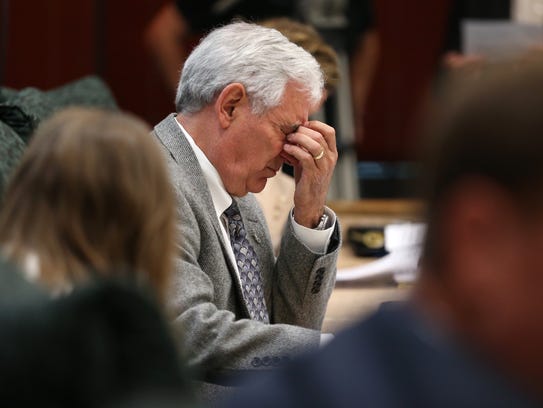 Buy Photo
Buy Photo
Environmental Regulation Commissioner Joe Joyce listens during a meeting at the Florida Department of Environmental Protection building Tuesday, July 26, 2016. (Photo: Joe Rondone/Democrat)
Gelber said he voted no because he wasn’t confident the data used for fish consumption and other factors were specific enough to Florida, a state with unique, karst geology and numerous water bodies. He said he applauds DEP for its efforts.
“Although I voted against the regulations, I feel that there are benefits that resulted from setting criteria on Tuesday,” he said. “We’ve set criteria for previously unregulated chemicals. We’ve reduced other criteria. And I would hope that the department would develop more Florida-based data during future reviews to address the citizens’ concerns for the chemicals that increased.”
The new standards must be reviewed and approved by the EPA before they become final. Young, of the Clean Water Network, said she plans to ask the EPA to hold public hearings in Florida before approving the limits. If the federal agency approves the state plan, litigation could ensue.
“I’m hoping EPA will say no,” Young said. “But if they don’t, it depends on how they justify and how they explain their decision. There’s a steep hill to climb to have a good legal basis for suing EPA over something like this. But I am not at all convinced that these criteria even meet EPA’s bare minimum standards.”
Environmental Regulation Commission members
Adam Gelber is a Miami Beach biologist and senior project manager for Atkins North America. He manages a variety of environmental projects and contracts, including one with the National Parks Service serving 38 states. His projects include wetlands remediation and coral reef restoration.
 Buy Photo
Buy Photo
Environmental Regulation Commissioner Adam Gelber listens in during a meeting at the Florida Department of Environmental Protection building Tuesday, July 26, 2016. (Photo: Joe Rondone/Democrat)
Joe Joyce has held a number of positions at the University of Florida's Institute of Food and Agricultural Sciences in Gainesville, including his current post as director of the IFAS Center for Leadership. He served 32 years in the U.S. Army reserves, retiring in 2004 as a brigadier general.
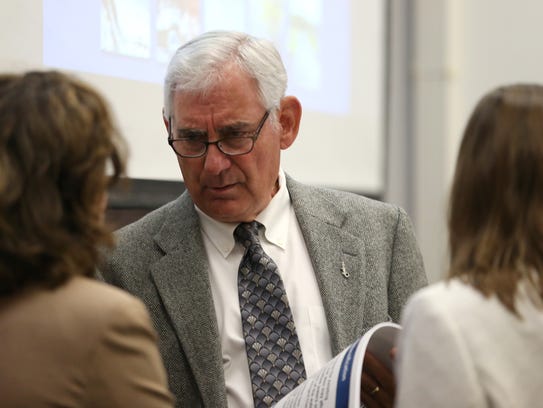 Buy Photo
Buy Photo
Environmental Regulation Commissioner Joe Joyce talks with his fellow commissioners before a meeting at the Florida Department of Environmental Protection building Tuesday, July 26, 2016. (Photo: Joe Rondone/Democrat)
Cari Roth is a Tallahassee attorney and shareholder with Dean Mead whose practice focuses on land use, environmental law and intergovernmental relations.She spent four years at the Department of Community Affairs, serving as general counsel and assistant secretary.
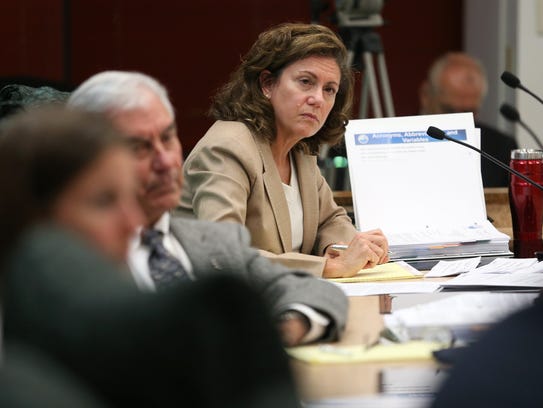 Buy Photo
Buy Photo
Environmental Regulation Commissioner Chair Cari Roth listens in during a meeting at the Florida Department of Environmental Protection building Tuesday, July 26, 2016. (Photo: Joe Rondone/Democrat)
Craig Varn is a Tallahassee attorney and shareholder with Manson Bolves Donaldson Varn. He served more than a year as DEP's general counsel before his appointment to the ERC. Varn, who has a degree in civil engineering, designed stormwater facilities before he became a lawyer.
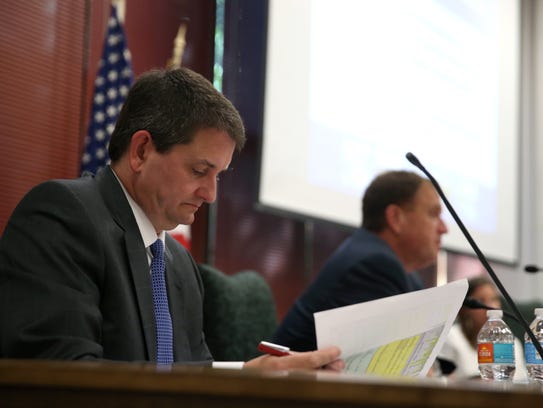 Buy Photo
Buy Photo
Environmental Regulation Commissioner Craig Varn listens in during a meeting at the Florida Department of Environmental Protection building Tuesday, July 26, 2016. (Photo: Joe Rondone/Democrat)
Sarah Walton is a Pensacola attorney who focuses on creditor's rights, including bankruptcy and commercial litigation. She mentors former female felons through a U.S. District Court re-entry program. She said she has never represented industry or environmental groups or oil companies.
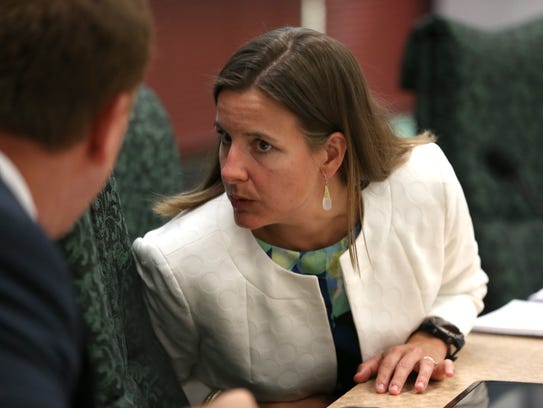 Buy Photo
Buy Photo
Environmental Regulation Commissioner Sarah Walton listens in during a meeting at the Florida Department of Environmental Protection building Tuesday, July 26, 2016. (Photo: Joe Rondone/Democrat)
Contact Jeff Burlew at jburlew@tallahassee.com or follow @JeffBurlew on Twitter.

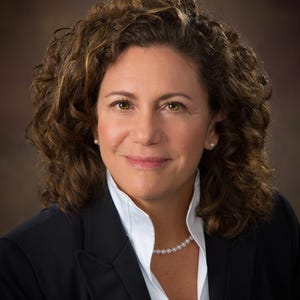
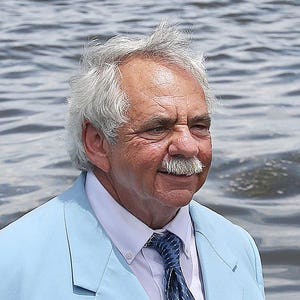
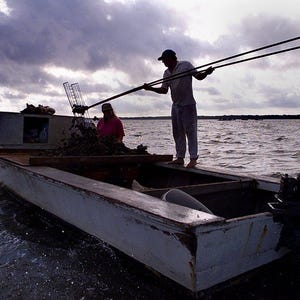
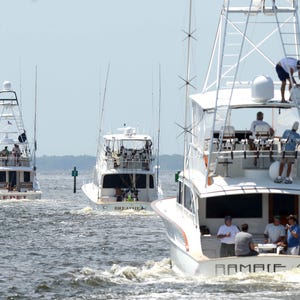
No comments:
Post a Comment